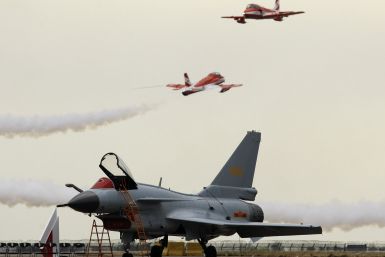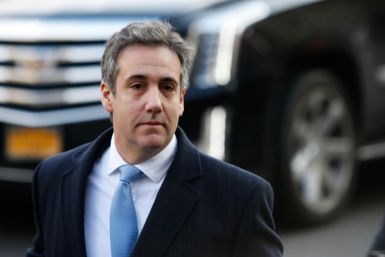MH370: Cover Up Heightens as Government Edited Audio Recordings, Expert Claims
On Thursday, Malaysia made public the preliminary report on the missing MH370. Part of the report were audio recordings that supported Malaysia's Air Accident Investigation Bureau's conclusion that a lack of real-time tracking devices caused the difficulty for the search of the missing plane.
However, voice experts told NBC News that the recordings were edited.
Audio-video forensic expert and registered investigator Ed Primeau of Primeau Forensics explained to NBC that the changing background noise in the recordings was the giveaway that there had been edits. Judging from the sound of the recordings, a part of the audio was recorded through a digital recorder.
"It's very strange at approximately 1:14 the tone of the recording change to where to me, it sounds like someone is holding a digital recorder up to a speaker, so it's a microphone-to-speaker transfer of that information. That's a pretty big deal because it raises the first red flag about there possibly being some editing. I can hear noise in the room, along with the increase in the noise floor. I can hear a file door being closed, I can hear some papers being shuffled. so I'm further convinced that, beginning at 1:14 continuing through 2:06 to 2:15, it's a digital recorder being held up to a speaker."
He also noted that there were long gaps throughout the communication, noting that at 6:17, the conversation was cut off.
"It's interrupted. And the tone changes again. The noise floor, when you're authenticating a recording from a forensic perspective, is a very important part of the process. All of a sudden, we go back to the same quality and extremely low noise floor that we had at the beginning of the recording."
Another forensic audio examiner, Kent Gibson of Forensic Audio in Los Angeles, noted that at 2:11 and 5:08, it sounded like the speaker was speaking using a microphone. He even noted an unusual sound of a person breathing and pages being turned at 4:07.
"It's not unusual that there would be clicks when they push the button on the microphone, but it's very unusual to have a disturbance. Normally you wouldn't have any background. It wouldn't be unthinkable to have a truncated word because if somebody let go of the trigger on the microphone, it might cut off their word," he said. "But it would be very unusual to find a background differential at the same time, suggesting that Malaysian authorities or whoever presented this made edits for whatever reason."
Gibson said that the edits found on the recordings do not prove anything about the investigation
"Unfortunately, there are no smoking guns, except there are edits. And there are clear edits," he said.
However for Tom Owen, a consultant for Owen Forensic Services audio analysis and chairman emeritus of the American Board of Recorded Evidence, it is acceptable for the recording to undergo editing as the investigation contains classified information that should not be made public at this point.
"There's things that have to do with timelines and radar that they have available, but they don't make them available. They wouldn't give you anything that would be enlightening for the public to any secretive information. I don't see that as a problematic issue."
Primeau upheld that editing the recordings was dubious coming from the Malaysian government.
"This is not a good maneuver or a good faith move by the Malaysian government because of all these questions with regard to the different anomalies and edits that are in this recording," he said.
Full MH370 audio recording.






